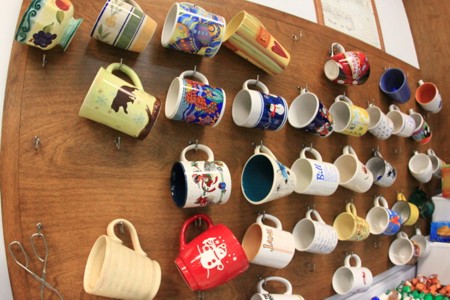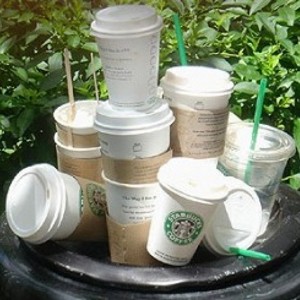A new study by a French group, appearing in the Journal of the Academy of Nutrition and Dietetics, seems to indicate that processed and popular ‘fast’ foods are not only bad for you, in the long run – they’re also bad for the environment. It may sound like rocket science, but I’ve got it for you in plain English…
 The way of the future? Will coffee sellers help reduce the galloping waste
The way of the future? Will coffee sellers help reduce the galloping waste
represented by billions of disposable cups in favour of sustainable
pouring solutions? Customers will flock to the idea if they get a
break on the price of their beverage!
The study looked at the Environmental, Dietary and Economic impacts of various foods and came to the conclusion that, generally, the lower the quality of food, the higher its impact on the environment.
If we consider mainstream fast-service foods – Burgers, Dogs, Fries, Fried Chicken menu items of all sorts, with all their companion menu items, and processed foods we buy at the supermarket, then take home and nuke – it quickly becomes clear that all the processing these foods go through involves a significant amount of greenhouse gas production.
Just one more nail in the coffin…
But that’s just one more black eye for the already-vilified Fast Food sector.
As we’ve learned lately, Fast Food operations contribute directly to the growing refuse problems of our world. Disposable Coffee cups alone cause their own litter and disposal problems as they stream out of Fast Food outlets and Coffee shops on almost every corner. Starbucks had a bring it back policy for a while but found that that approach only centralized the litter/disposal issue – in their lap. Seems paper coffee cups can’t be recycles in the same way as other paper cast-offs: There’s a plastic coating that current recycling systems can’t cope with.
Now, headway is being made here. James Cropper PLC of the UK has developed a process to turn old paper cups into new business paper for printers and copiers. But so far, there’s only one plant in existence and the economic viability of the process is yet to be confirmed.
There is also some hope on the horizon that those foam plastic hot beverage cups will soon become compostable. Seems a rare jungle fungus from the Amazon Basin has been discovered to have the ability to digest polystyrene. That, apparently, includes the hard-plastic lids found on both paper and foam cups, as well as foam cups, themselves. This concept is still in the early stages of laboratory experimentation and will be years if not decades coming to market.
But let’s not forget…
Coffee cups are just one aspect of the paper and plastic fallout from take-out foods and processed foods we take home from the supermarket.
Do yourself and your world a favour. Don’t buy foods that jam the landfills and whose manufacture and preparation promote ecological destruction.
~ Maggie J.

